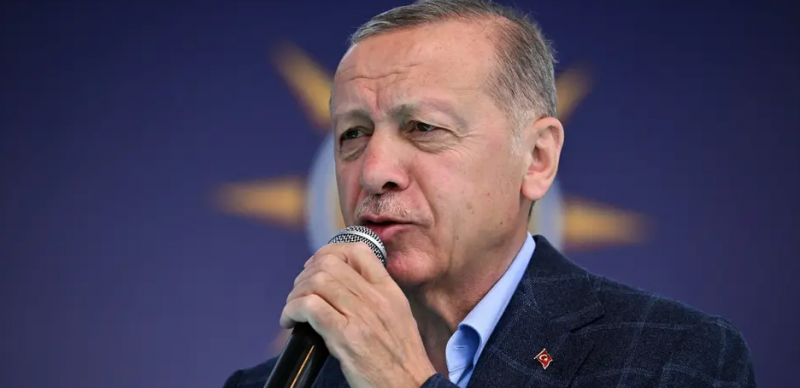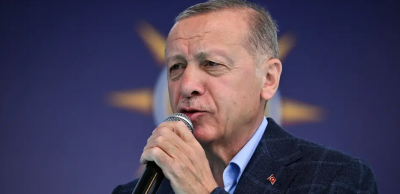The victory of Turkish President Recep Tayyip Erdogan in the presidential elections demonstrates that he still retains influence over millions of Turks after 20 years in power, as many believe he is the most suitable man to solve problems that critics say he created himself. Hundreds of thousands of Erdogan's supporters celebrated, waving flags late into the night, reflecting the enthusiasm he can generate among his supporters with his Islamic reference policies, despite the economic difficulties that many thought would lead to his defeat.
Supporter "Banu" expressed jubilation saying, "Victory is ours; how happy we are. Goodbye, Mr. Kemal. Thank God, Islam has triumphed," referring to opposition candidate Kemal Kilicdaroglu, who Erdogan defeated in the runoff on Sunday. Omar, one of the thousands gathered at the presidential palace in Ankara, said, "Today is our joyful day. Our president has won. I feel like I'm going to perform Hajj in Mecca."
The result renewed the mandate given to the president, who has implemented wide-ranging changes in Turkey, shaping a state known for its secularism according to his religious vision while consolidating more powers in his hands and asserting his presence on the global stage. Erdogan, a seasoned politician who has won in numerous elections and is an eloquent speaker, relied on a speech that blended conservative and nationalist elements to attack his opponent Kilicdaroglu.
While courting his conservative Muslim supporters, Erdogan repeatedly labeled the opposition at his campaign rallies as pro-LGBT. He also claimed that Kilicdaroglu has ties to the Kurdistan Workers' Party, which many Turks view with hostility due to the bloody rebellion it has waged against the authorities since 1984. Erdogan's slogans helped divert attention from economic issues, including the cost of living crisis, which opponents largely blame on his unconventional economic policies of lowering interest rates amidst rising inflation. He benefited from a largely friendly Turkish media landscape, which critics argue he has brought under his control.
Erdogan won 52.1% of the votes compared to 47.9% for Kilicdaroglu, reflecting the sharp divisions within Turkey. Some of Erdogan's supporters acknowledged the tough times the country is currently facing but insisted he is the man who helped improve the situation. Nuran, after casting her vote in Istanbul, said, "We love him very much... the country has many problems, but if anyone can solve them, it will be him (Erdogan)." Others voted based on their assessment of his long tenure, citing Turkey's increasing economic and diplomatic power since he took office in 2003.
Construction worker Omar Kuskul, 58, in Istanbul said, "I voted for Erdogan because he is a global leader. I gave him my vote because I appreciate what he has done for Turkey. He has forever changed the healthcare system. He built the roads." Erdogan's performance defied expectations that he would pay a political price following the devastating earthquakes that killed over 50,000 people in southeastern Turkey in February. Critics accused his government of slow disaster response and leniency in enforcing building codes, failures they say may have cost lives.
The Justice and Development Party (AKP), led by Erdogan, topped the polls in ten out of eleven provinces affected by the earthquakes, which helped him and his allied parties secure a parliamentary majority in the legislative elections held concurrently with the presidential elections this month. Emre Erdogan, a political science professor at Bilgi University in Istanbul, noted that the Turkish president succeeded in portraying himself as a national savior against threats while maintaining support from conservative voters who have long felt marginalized. He added that Erdogan's success "was supported by his supporters' belief in his ability to solve problems, even though he created many of them."




